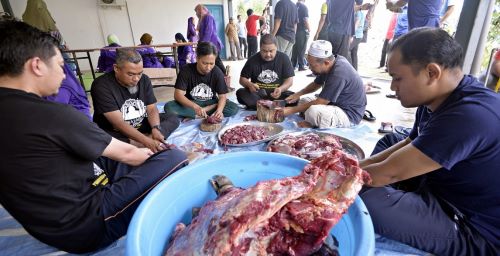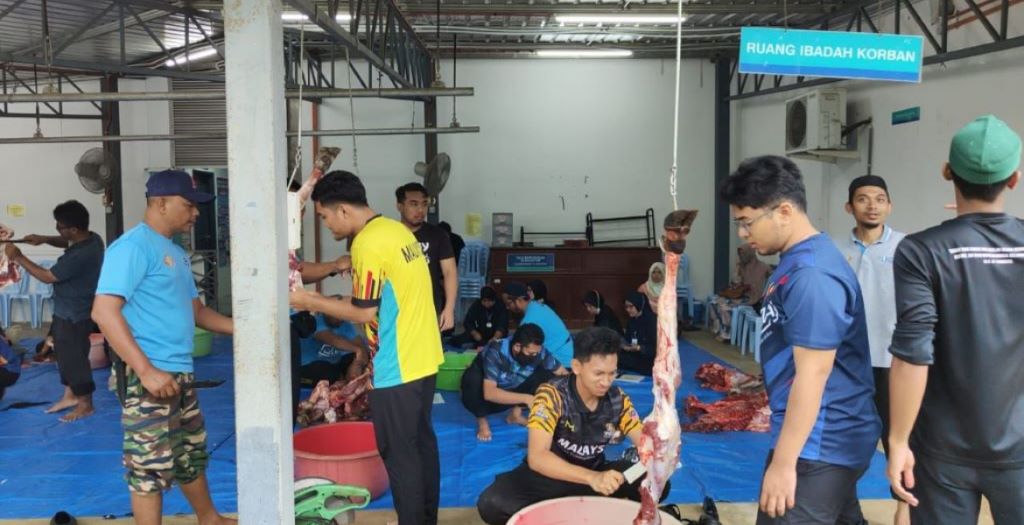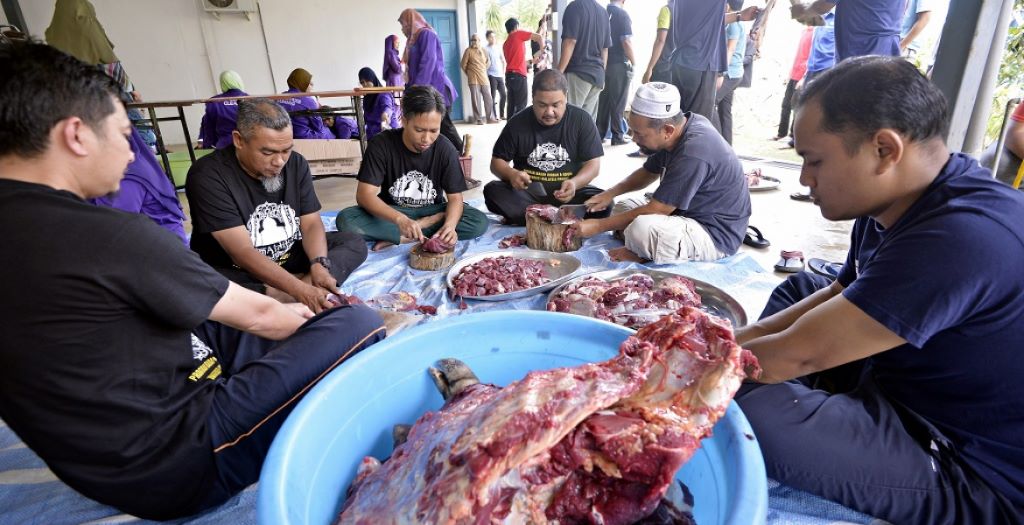The True Meaning of Sacrifice
Muslims worldwide celebrate two major annual festivals; Aidilfitri and Aidiladha, both referred to as Hari Raya in Malaysia. Hari Raya Aidilfitri is a lively celebration characterised by visits to family and friends, colourful traditional attire, and festive meals.
In contrast, Hari Raya Aidiladha, while equally significant, is observed with a more solemn and reflective tone, emphasising the ritual sacrifice, or Qurban. In Malaysia, Hari Raya Aidiladha will be celebrated on 17 June 2024, coinciding with 10 Zulhijah 1445 Hijrah. This date was confirmed by Datuk Mohd Aseral Jusman, Assistant Secretary of the Council of Rulers, who announced that 1 Zulhijah fell on 8 June 2024, thereby setting Hari Raya Haji ten days later.
In the heart of Islamic tradition lies a profound concept of sacrifice, epitomised by the practice of Qurban during Aidiladha. This annual event, also known as the Festival of Sacrifice, commemorates the unwavering faith and obedience of Prophet Ibrahim to Allah. It serves as a reminder to Muslims worldwide of the virtues of devotion, selflessness, and charity. The essence of Qurban traces back to a pivotal story in Islamic scripture, where Prophet Ibrahim was commanded by Allah in a dream to sacrifice his beloved son, Ismail. This divine test of faith was met with immense trust and compliance by both father and son. As Ibrahim prepared to fulfil the command, Allah, pleased with their submission, intervened and provided a ram to be sacrificed in Ismail's place. This narrative, found in the Quran (Surah As-Saffat, 37:102-107), symbolises the ultimate act of surrender to the will of Allah and highlights the importance of faith over personal desires.

Qurban, derived from the Arabic root word "qurb," linguistically means "closeness" or "nearness." This term underscores the fundamental concept of drawing nearer to Allah through acts of devotion. Semantically, Qurban represents more than just physical proximity; it signifies the spiritual act of drawing closer to Allah through obedience, righteousness, and sacrifice. It is a symbolic gesture that embodies the believer’s willingness to give up something valuable as a demonstration of their faith and submission to divine will. Contextually, Qurban refers to the ritual practice of animal sacrifice performed during Aidiladha. This ritual commemorates Prophet Ibrahim's readiness to sacrifice his son Ismail in obedience to Allah's command. The practice involves the slaughtering of a sheep, goat, cow, or camel, with the meat distributed among family, friends, and those in need.
Qurban, in its comprehensive meaning, signifies drawing closer to Allah through acts of obedience and righteousness. The ritual of animal sacrifice during Aidiladha is a profound expression of this closeness. By sacrificing an animal, Muslims not only commemorate Ibrahim's devotion but also embrace the values of humility and piety. The meat from the sacrificed animal is distributed in three parts: one for the family, one for relatives and friends, and one for the less fortunate. This act embodies the spirit of charity and community, reinforcing the principle that wealth and blessings are to be shared. It is a poignant reminder of the social responsibility Muslims hold towards those in need. This festival also signifies the end of the Hajj pilgrimage. Millions of Muslims undertake this journey to Mecca, fulfilling a spiritual obligation.
While the physical act of sacrifice is significant, the deeper spiritual lessons of Qurban are what truly resonate. It is not merely about the act of slaughtering an animal but rather about the willingness to give up something precious for the sake of Allah. This willingness is a reflection of inner faith and the prioritisation of divine commands over worldly attachments. In essence, Qurban teaches Muslims about the importance of sacrificing personal interests for the greater good, fostering a sense of empathy and compassion. It encourages believers to reflect on their own lives and consider what they are willing to sacrifice in their pursuit of righteousness and closeness to Allah.
Aidiladha is more than a festival; it is a time for introspection and spiritual renewal. Muslims around the world gather in prayer, donning their finest attire, and listening to sermons that reiterate the themes of sacrifice, devotion, and charity. The communal prayers held in mosques foster a sense of unity and shared purpose among the faithful. The act of Qurban, performed during Aidiladha, thus becomes a powerful symbol of faith, community, and charity. It serves as an annual reminder of the values that form the bedrock of Islamic teachings. As Muslims offer their sacrifices, they are called to reaffirm their commitment to these values, striving to live lives marked by integrity, generosity, and unwavering faith.
The true meaning of sacrifice in Islam, as embodied in the practice of Qurban during Aidiladha, extends beyond the physical act of animal sacrifice. It encompasses a profound spiritual dimension that calls for devotion, selflessness, and a deep sense of community. By commemorating the willingness of Prophet Ibrahim and Ismail to submit to Allah's will, Muslims are reminded of the importance of faith and the virtues of giving. Aidiladha, therefore, is not just a celebration but a time for Muslims to reflect, renew their faith, and embrace the true spirit of sacrifice in their daily lives.

Aidiladha offers a powerful message of selflessness, compassion, and community. It is a reminder that true strength lies not in physical power or material wealth, but in the willingness to sacrifice for the greater good. Are we prepared to give up our time, energy, and resources to help those in need? Are we ready to volunteer for charitable causes, support our friends and family, and contribute positively to the community? Our society faces numerous challenges and Aidiladha calls on us to reflect on these issues and act. By embracing the spirit of sacrifice, we can work towards creating a more compassionate and just society.
As we bid farewell to this year's Hari Raya Aidiladha celebrations, let us carry the values of the spirit of giving and unity embodied in our hearts throughout the year. May the lessons of sacrifice, gratitude, and charity continue to inspire us to be compassionate individuals and foster stronger bonds within our communities. Wishing you and your loved ones a blessed and joyous Hari Raya!
This is the personal opinion of the writer or publication and does not necessarily represent the views of UMPSA.

Writer is a Senior Language Teacher at Centre for Modern Languages (CML), Universiti Malaysia Pahang Al-Sultan Abdullah (UMPSA).
By: Amy Zulaikha Mohd Ali
E-Mail: Amyzulaikha@Umpsa.Edu.My
- 531 views











